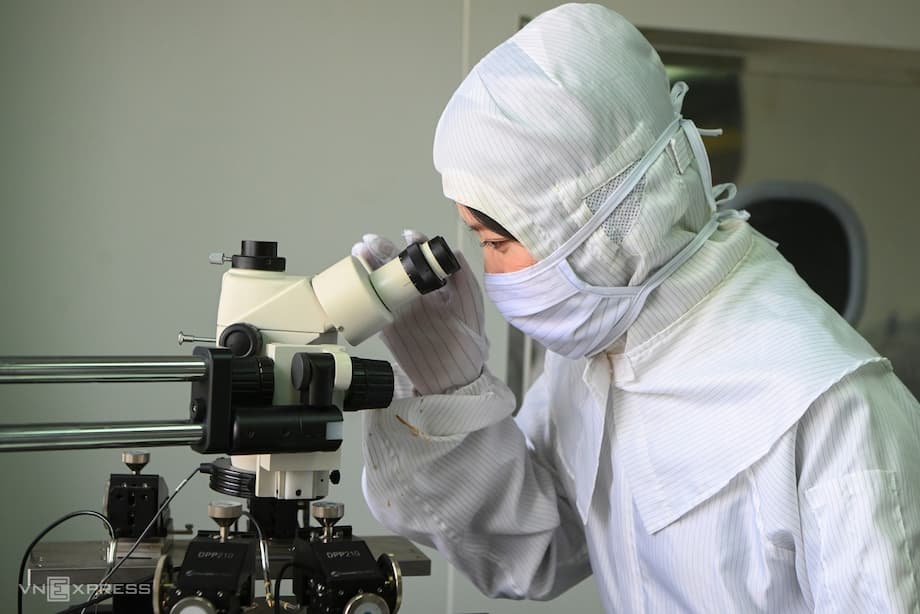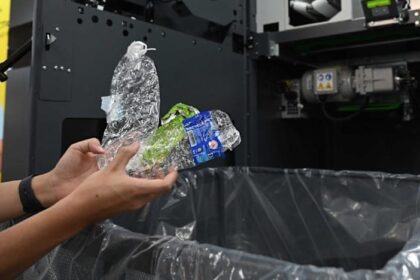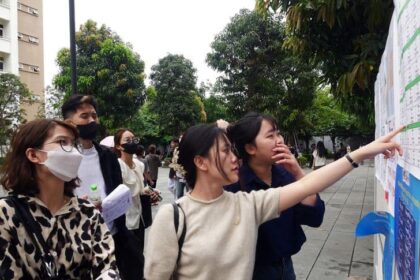Vietnam steps up incentives in the global race for tech talent
Vietnam has opened a new chapter in its competition for scientists and engineers by approving a package of direct living and working benefits for experts who join government projects in technology, innovation, and digital transformation. A new decree allows state agencies to pay housing and transportation allowances or provide apartments and vehicles to eligible scientists. It also authorizes annual bonuses of up to four months salary and lets researchers earn income by licensing or selling technologies they create while under contract. The plan reflects a wider push to make Vietnam a magnet for advanced talent at a time when governments and companies worldwide are competing to build capacity in semiconductors, artificial intelligence, and digital infrastructure.
- Vietnam steps up incentives in the global race for tech talent
- What the new decree offers to scientists and engineers
- A wider legal shift from 2026
- Who qualifies as high quality tech talent
- Why Vietnam is moving fast on semiconductors and AI
- Benefits for families and daily life
- What businesses can expect
- Da Nang as a test bed for tech investment
- Challenges to watch
- What to Know
The policy addresses a long standing complaint from experts that Vietnam’s public sector incentives lag far behind offerings in developed countries. Under the decree, scientists who sign contracts with government bodies will receive a relocation allowance equal to one month of salary. They will also be eligible for a healthcare package worth up to 1 percent of annual salary. Foreign experts receive added support, including airfares once a year for themselves and family members to visit home. Families qualify for multiple entry visas and temporary residence cards and are eligible for a healthcare allowance of 1 percent of annual salary. Those who wish to seek Vietnamese citizenship can apply under recently eased criteria. Recruitment will target proven performers, such as inventors of patented products, authors of widely applied or award winning research, experienced professionals from top laboratories and enterprises abroad, and doctorates from universities ranked in the global top 200. Candidates with strong publication records, such as at least 10 papers in recognized international journals, will also be considered.
What the new decree offers to scientists and engineers
The decree, referenced as Decree No. 249/2025/ND-CP, is designed to make a government role more attractive without diluting performance requirements. It gives public organizations room to negotiate salaries at market levels, and it links bonuses to results and commercialization outcomes. For researchers who have spent years abroad, the package aims to reduce the friction of moving and settling in Vietnam, while creating a path to long term careers in the country’s growing tech ecosystem.
- Housing and transportation support, or government provided apartments and vehicles where appropriate
- A relocation allowance equal to one month of salary, paid upon contract signing
- Performance bonuses of up to four months salary each year
- Income rights from selling or licensing research results developed under contract
- Healthcare support worth up to 1 percent of annual salary for the expert and a similar benefit for eligible family members
- For foreign experts and their families, annual round trip airfares to visit home
- Multiple entry visas and temporary residence cards for spouses and children, along with assistance in accessing schools and public services
- A clearer route to Vietnamese citizenship for those who choose to apply under updated rules
Eligibility is deliberately narrow. The decree prioritizes scientists with inventions that led to real products, authors of research with measurable impact, and professionals with substantial experience at respected research institutes, universities, or enterprises abroad. A doctorate from a university ranked in the global top 200 and a strong record of international publications are major advantages. The focus is on demonstrated excellence and practical outcomes that can boost Vietnam’s technology capabilities.
Compensation is anchored by a negotiated salary, which is unusual in public administration and meant to reflect market realities in fields like AI research, chip design, and advanced computing. Bonuses tied to commercial revenues from licensed or sold technologies give scientists a material stake in the success of their work, a mechanism long associated with dynamic research ecosystems.
A wider legal shift from 2026
The decree sits alongside a broader transformation of policy that begins on January 1, 2026, when the Law on Digital Technology Industry takes effect. The law sets out a comprehensive framework to scale the digital economy and compete for talent. It recognizes digital technology as a growth engine, prioritizes strategic fields such as semiconductors, artificial intelligence, and high performance computing, and creates a mix of incentives for both companies and individuals. For qualified digital technology professionals, the law introduces a five year exemption from personal income tax and streamlines immigration with temporary residence cards valid for up to five years. Support extends to spouses and children under 18, reinforcing Vietnam’s pitch as a family friendly destination for global experts.
The law also opens faster career pathways in the public sector for high performing specialists. Qualified professionals may be appointed to public office without sitting for standard entry exams, and advancement can be accelerated without traditional seniority or planning requirements. Public employees returning from the private sector can retain or even exceed their previous rank, salary, and benefits when they take comparable roles. Education and training programs will receive state support so that Vietnamese engineers and scientists can meet the standards of national digital technology hubs.
Corporate incentives are equally sweeping and help explain why talent policy matters so much to business plans. Digital technology companies are slated to receive generous tax relief and land access. For many firms, there will be a full corporate income tax exemption for the first two years and a 50 percent reduction for the next four years, plus a waiver of land rent for three years. Companies in priority fields, such as semiconductors, AI, and high performance computing, can qualify for a preferential corporate tax rate of 10 percent for 15 years, with four years of tax exemption and a 50 percent reduction for the following nine years, as well as up to 15 years of land rent exemption. Very large investments in those priority fields, starting from about 6 trillion VND, are set to receive incentives aligned with mega project rules. These include a 5 percent corporate income tax rate for 37 years, six years of tax exemption, a 50 percent reduction for the next 13 years, and land and water rent waivers for 22 years followed by a significant reduction after that period. This mix signals a long horizon for investors and creates demand for a deep bench of skilled workers.
Who qualifies as high quality tech talent
Vietnam’s new recruitment standards are tightly linked to impact. Authorities are looking for inventors and co-inventors whose patents resulted in real products, authors of research that has won international awards or seen wide adoption, and professionals who built their careers at respected institutions abroad. A doctorate from a top 200 global university is a strong signal, as is a record of at least 10 papers in recognized international journals. These criteria favor candidates who can bridge fundamental research and market needs, and who can help build domestic capacity through technology transfer and mentoring.
For overseas Vietnamese scientists and international experts, the message is straightforward: the door is open for return and relocation into roles with clear responsibilities and tangible support. The Ministry of Science and Technology is also advancing a Talent Attraction Strategy to 2030, with a vision to 2050, to align recruitment with national priorities in semiconductors, AI, and digital infrastructure. Measurable outcomes will carry more weight than process, with evaluation anchored to results such as patents, international publications, and commercialized products.
Officials have also set short term targets, including an effort to recruit at least 100 leading experts by late 2025. Alongside the decree and the new law, supporting measures, such as greater autonomy for public research organizations and clearer benefit sharing rules for commercial outcomes, are under development to help make Vietnam a career destination rather than a short stop assignment.
Why Vietnam is moving fast on semiconductors and AI
Semiconductors, AI, and advanced computing are now seen as strategic resources that affect both economic growth and national security. Vietnam already plays a major part in global electronics, especially assembly and testing for consumer devices and networking equipment. The new policies aim to move the country up the value chain with more chip design, software engineering for AI, and research intensive activities that create higher value jobs. A steady pipeline of tech graduates, a growing base of multinational partners, and improving infrastructure give Vietnam a platform to build on, provided it can secure senior technical leaders and experienced researchers.
Global firms have expanded their footprint in Vietnam’s key cities, and partnerships with leading design tool providers and chip companies are deepening. National incentives for companies and generous personal terms for experts are intended to converge into a full ecosystem where R and D, skilled manufacturing, and product commercialization reinforce each other. The focus on high performance computing and AI also reflects demand from finance, telecom, and industrial sectors that need large scale data processing and strong cybersecurity.
Benefits for families and daily life
Relocation is a family decision, so Vietnam’s package includes provisions that reduce uncertainty for spouses and children. Under the decree for scientists working with government agencies and the law taking effect in 2026, qualifying foreign experts can obtain temporary residence cards for up to five years. Their spouses and children under 18 receive similar support, including multiple entry visas and assistance to access education and employment. For government recruited experts, annual airfares to the home country for the family help maintain ties and ease reentry if needed.
Personal income tax relief makes a practical difference. A five year exemption for qualified digital technology professionals increases take home pay during the initial years of a contract, a period when relocation costs are highest and families are adjusting to new routines. Healthcare allowances, access to public schools, and help with settling in, such as school placement and local administrative procedures, are part of the effort to create stability for accompanying family members.
What businesses can expect
Tax and land policies under the new digital technology framework are designed to reward patient investment. For many digital technology companies, the plan grants a full corporate income tax exemption for two years and then cuts the tax bill by half for the following four years. Land rent may be waived for three years to reduce upfront costs for facilities and laboratories. These rules lower early stage expenses, when most projects are still building teams and piloting products.
Priority fields receive stronger support. In semiconductors, artificial intelligence, and high performance computing, eligible enterprises can secure a 10 percent corporate income tax rate for 15 years with an initial four year exemption and a subsequent nine year 50 percent reduction. Land rent exemptions can extend up to 15 years. For very large investments, corporate income tax can drop to 5 percent for 37 years, with a six year exemption and a 13 year 50 percent reduction after that. Land and water surface rents can be waived for 22 years and reduced thereafter. These are long duration incentives that align with the investment cycles of fabs, design centers, and data centers.
For readers new to the terminology, corporate income tax is the levy on company profits, while personal income tax refers to employee earnings. Reducing the former frees capital for expansion and R and D. Reducing or eliminating the latter for a time raises the standard of living for experts who relocate, which can be decisive in a competitive global market for skills. Policymakers are drafting guidance to implement the law consistently and to streamline administrative steps that often slow new projects.
Da Nang as a test bed for tech investment
Da Nang, the main economic hub in Central Vietnam, offers a preview of how national and local incentives can combine to build an innovation cluster. Scores of domestic and international companies have joined the city’s emerging ecosystem, with activity concentrated in semiconductors, microchips, and AI. The city has posted strong growth and is investing in critical infrastructure, including a semiconductor lab and fabrication facility and a large data center. Plans call for cultivating hundreds of thousands of high skill workers over the next decade and building a permanent community of experts that includes thousands of foreign professionals.
Special mechanisms under a National Assembly resolution give Da Nang room to attract strategic investors. Eligible projects in semiconductors and AI can access land through direct allocation or auctions and obtain relief on personal and corporate taxes in specific cases. Startups and support organizations in semiconductors and AI may qualify for corporate tax exemption for five years, and investments in unlisted startups can benefit from relief on capital gains. Skilled professionals in semiconductor and AI roles may qualify for personal income tax exemptions for five years. The city also supports research and development with priority customs handling, a 150 percent deduction of R and D costs against taxable income, and test beds where new technologies can be trialed for up to three years in innovation zones.
Publicly funded infrastructure can be leased at favorable rates to eligible startups, and there are subsidies for equipment, relocation, and training. Authorities can adopt flexible income policies for public sector specialists and design tailored packages to attract scientists. These targeted local steps mirror national ambitions and show how city level execution can turn legal frameworks into on the ground capacity.
Challenges to watch
Vietnam’s offering is stronger than in previous years, yet the global competition for top experts is intense. Salary levels in developed economies still exceed what many Vietnamese institutions can pay. Research infrastructure and administrative procedures need upgrading in places to match the expectations of senior scientists. Policymakers acknowledge these gaps and are prioritizing clear benefit sharing, greater autonomy for public science organizations, and a shift toward evaluating research by output, such as patents or commercial products, instead of purely procedural metrics.
The government is also experimenting with talent oriented positions in public administration to raise standards quickly. A proposal is being prepared to recruit chief engineers and chief architects for critical fields such as smart cities, digital infrastructure, and cybersecurity. The plan envisions competitive pay, performance based bonuses, tax relief, housing support, and family benefits for these roles, backed by a dedicated state budget. The goal is to bring technical leadership into decision making while the broader science and technology ecosystem scales up. If paired with timely guidance for the new laws and continued investment in labs and training, the latest incentives could accelerate Vietnam’s progress in semiconductors, AI, and digital industries.
What to Know
- New decree offers housing, vehicles, relocation allowances, and bonuses to scientists working with government bodies
- Researchers can earn income by licensing or selling technologies created under contract
- Foreign experts and families receive annual airfares, multiple entry visas, temporary residence cards, and healthcare allowances
- Eligibility targets inventors, award winning researchers, top 200 doctorates, and authors with strong international publication records
- Law on Digital Technology Industry takes effect on January 1, 2026 and includes a five year personal income tax exemption for qualified digital professionals
- Foreign experts in digital technology can obtain renewable temporary residence cards valid for up to five years for themselves and family
- Companies receive corporate tax exemptions and reductions, with stronger incentives for semiconductors, AI, and high performance computing
- Large projects in priority fields can qualify for a 5 percent corporate tax rate for 37 years and long land rent waivers
- Vietnam aims to attract at least 100 leading experts by late 2025 and is drafting a long term talent strategy
- City level programs, such as in Da Nang, add local tax relief, land access, R and D support, and pilot sandboxes to build tech clusters












